On reading taste
Mine, yours, ours
Taste is a goal I keep circling. I keep trying to nail it down, make it something I can name: this is what I like, this is who I am. I don’t believe in good and bad taste, but PERSONAL taste — that feeling of knowing what you like and why — I chase. And the pursuit seems almost doomed. My circumstances change and what I read changes with them. Books that once felt remote suddenly become urgent; others that once animated me go dull in my hands. Just when I start to see the map appear, it redraws itself.
I admit that part of my obsession with taste comes from insecurity. For a long time, my reading life felt scattered and externally motivated mostly by lists: best of lists, cool people’s reading lists1 , lists of classics one must read before we die... For years I would wait for the New York Times to tell me which books from the previous year were the best ones and then I spent the following year catching up to that list until the next one rolled in. I was reading, yes, but with a faint sense of aspirational performance, with a clear goal to better myself. Taste, in that era, belonged to other people. They had it. I was chasing it and I felt permanently behind.
What got me off that merciless track was — perhaps, predictably — a book. John Williams’s Stoner. You can see me in this old video below2 reading it while waiting for Rumi’s ramen to cook. I love it when a book takes hold of me this deeply that I kind of struggle to keep up with my daily responsibilities.
It’s a story set in the early half of the 20th century and centers William Stoner, a farm boy in Missouri who becomes the first in his family to go to college. He stumbles into an English Literature class, falls in love with books, and never leaves. He becomes an English professor at his alma mater, gets married, has a child, suffers through an unhappy marriage, and devotes himself to teaching. It’s a quiet book about the transformational power of becoming a reader, about becoming self-aware and honest with oneself about one’s shortcomings, about accepting a small, unremarkable life but living it with dignity and honor. It felt so tender, so alive…. and wish I could have kept reading it forever.
For the bespectacled among you, reading Stoner was like putting on new glasses. The world suddenly became brighter, sharper, more alive. Not because the book was canonical, but because I recognized something essential in myself. It showed me what I craved most in books: emotional resonance, a reflective tone, a story that investigates the life of a curious mind; writing that doesn’t dazzle with plot but slows life down, directing attention to the depths of the interior life. The book was my life-ruiner. Of course, I had felt strong emotions after reading a book before, but this was the first time I could see the feeling and trust it — my taste had become personal, and that mattered.
I keep returning to the question of taste because underneath it is something larger: the struggle to let myself love what I love without justification. The sense that I must always read what is important, or difficult, or improving. To read according to my taste and not anyone else’s is for me how I practice liberation. The books that I choose for myself become more than books; they become reminders that I do not need to earn my own enthusiasms.
So… when the physical and metaphorical seasons change, and I start to feel unease with what once satisfied me … I start to panic a bit. What does it mean to have personal taste if said taste seems to change so quickly? Is the concept even helpful? Rather than taste, is depth or breadth of reading a better goal to aspire to? When do we hold on and when do we let go to make room for something different?
I have been agonizing over these questions for months and, struggling to come up with good answers for myself, I decided to ask some friends. The people I reached out to inspire me with their intentional reading choices, their ability to articulate the impact that books have on them and … well… what I perceive to be clear, recognizable taste. Here is what I asked:
What does the idea of “reading taste” mean to you — do you embrace it, resist it, or ignore it altogether?
How do you think about the balance between following your taste and reading widely or diversely?
Have there been moments when you’ve felt your taste dissolve or reconfigure in response to a single book, author, or season of life?
Do you see taste as something worth cultivating, or as an artificial frame we put around the act of reading?
What kind of relationship do you want to have with your own reading life: one guided by taste, by curiosity, by accident, by something else?
And here is what they told me.
The mini-essays below were edited down for length. Any awkwardness in phrasing is entirely my doing. All images are courtesy of the contributors and used here with their permission.
- Milking It
“I find the concept of “taste” to be so slippery. It’s this elusive thing that shifts constantly and you can never fully grasp it. At least, that’s how it feels to me. It’s not a destination to be reached, but a never-ending journey. The same goes for writing (in fact, they are very linked for me). I’m always chasing a bar that, no matter how tall I get, I can never quite reach.
I embrace the idea that I read with taste, because that feels nice, but it’s not something I notice until I’m looking back and seeing how the books I read shape a sort of taste-driven trajectory — from learning to read with Arc-en-ciel le poisson all the way to foaming at the mouth for the new Olga Tokarczuk. Taste is meant to be cultivated with time and thought. You can’t take a shortcut to “Jane Birkinify” your reading taste like you can a leather bag — the patina has to be worked for. I am not the same reader I was last year, last month, last book.
Lately, my taste demands that I read widely in order to feel good and excited about reading. I’ve read so much of the same that I crave expansion, I want to push back on the walls of my experience. To me, this is the intentional part of taste: looking up authors, translators, publishing houses, trying to find things that feel like a spark.
PKG: I really connect with the idea here that because taste takes time to cultivate, it is best appreciated looking backwards. Also, Nic is the person who has most clearly taught me to recognize the reading life’s expansive and contracting pulses. Sometimes it feels so good to dig in and go for the depth; other times, your soul needs to wander.
- Juliana, cronista
“Taste” is such a difficult concept for me! My partner studies aesthetics, and I had to resist the urge to ask for a crash course on the history of taste as an aesthetic concept and instead go with my gut. “Reading taste,” then, is what draws me to a book. I have a set of topics and themes that often catch my attention, and some formal experimentation also fits into this list.
I tend not to force myself to read something just because it falls outside of my interests, but I don’t block myself from doing so either. I’m lucky to have friends (and to have curated a nice Instagram feed) with tastes that are somewhat similar but also distinct from my own, so I always have a sense of what’s out there even if it’s not on my radar. It also helps that my partner knows me incredibly well but has a different taste from my own, so when he stumbles on something I might like and tells me so, I jump right in. Both cultivating taste and letting things run their course are valid approaches to reading, depending on what you’re looking for in books. I like to have fun with my books, but I also and perhaps even more so like to enjoy a book, even if purely rationally. Personally, I like to think I’m developing something of my own taste, beyond mere likes and dislikes.
During a huge portion of my PhD, I read very little or not at all. That meant two years without touching a book for fun, basically, because of sheer mental exhaustion. Before this, I was a big reader of fantasy, didn’t read any nonfiction except for research, and felt like “literary fiction” was either too stuffy or just not for me. Then one day I decided I wanted to go back to reading for fun and devoured Namwali Serpell’s Stranger Faces, a collection of short essays about faces, which happened to be the topic I was wrestling with for my dissertation. I read it in just a couple of days and realized I could find joy in reading again — and in things I had not considered “for me” before.
PKG: As someone who still feels the scars of academia, I loved reading about Juliana’s experience of re-discovering reading as a response to the mental exhaustion of graduate school. Seasonality of life = seasonality of reading.
- Movement is life studio
“I see taste as something to intentionally cultivate for ourselves because we are living at a time where so many people are sharing their reading tastes, recommendations, thoughts. I think this is a good thing — I’d rather see book thoughts on my feed than unboxings of fast fashion or another 12-step skincare routine. But because our feeds are always bringing a buffet of ideas, I think it’s worth doing a bit of self-assessment to notice the kinds of books that are fulfilling, scratch an itch, feel aligned with the things you are curious about.
For years, I found NYT and NPR book list recommendations reliable in feeding me summaries of books that piqued my interest. I almost always could find a good read or two from these lists. But then, about two or three years ago, each book that was hailed on these lists just didn’t connect with me. They simply weren’t good experiences, even though many others glorified them. I realized then that the books on these lists were dulling my zest for reading. So I shifted my taste to “classics” and started reading books written before 1990. This change resurrected my limping reading life and redirected my taste.
That taste looks like a book that gives me characters who are nuanced, a view of their inner lives, and a setting in a particular time in history that helps me connect things happening today to timelines of years past. A few books that brought about that change were The Street by Ann Petry, The Woman Destroyed by Simone de Beauvoir, and Dracula by Bram Stoker.
PKG: I was really happy that Janet agreed to share her thoughts because she is so good at calibrating her life. We haven’t met in person (yet), but she seems exquisitely attuned to her internal weather and wastes no time pretending. In reading and in life, she adjusts, re-shelves and reaches for what feeds her, which is exactly the habit of attention and self-trust I’m trying to cultivate.
Mike - Books on GIF
“Taste” is what I cultivate in myself when I am educated, enriched, and entertained by reading a diverse range of authors and books. It’s not a fixed thing I attain, but something I strive for — always just at the edge of my grasp, never fully achieved. I don’t like the idea of “taste” as an award an establishment bestows on someone, or as a ranking where one person has “better taste” than another. For me, it’s a personal journey, not a competition.
I think about balance the way I think about food. I love pizza. If I eat it all the time, though, I’ll get tired of it. So, I’ll try a samosa. Turns out I love that, too! Next, I’ll try a foam. Yuck — I don’t like foams. Even so, my taste has been expanded again by trying it. Now, I’ll still have pizza from time to time, but not every day. I may try a foam again, and I’ll be better prepared for it. We should approach books this way. Not every book is for every reader, of course, but how would we know which books are for us if we don’t nibble here and there?
The relationship I want with my reading life is guided by all these things — taste, curiosity, accident. I often say my reading approach is based on vibes. Sometimes I’ll choose a book because the description grabbed me, or because I liked the title or cover design, or maybe because I saw it mentioned somewhere. Recently, I picked up a book simply because I saw it in two consecutive bookstores and took that as a sign from the universe. At the same time, I’m always running a quiet audit in the back of my head: How’s my reading mix? Am I challenging myself to try new things? Am I reading too many books or authors that feel the same? Sticking to my comfort zone can lead to a rut — but so can a string of diverse clunkers. It’s a journey. Not every book will work for me, and that’s fine. My goal is to stay open to the next book that brings me joy and excitement, and then to tell everyone about it.
PKG: Unsurprisingly, Mike has the perfect metaphor for what I am struggling to describe. I truly understand the push and pull of allowing for comfort and known quantities while also playing a long game of open mindedness and adventure.
- FictionMatters
“I do think personal taste is something worth cultivating. The development of taste requires both reflection and deep reading — and I’m a huge proponent of both. To really consider our own taste, I believe we need to notice details, ponder tone, and pay attention to things like structure, point of view, and pacing. That type of close consideration makes for good reading and good readers.
I also think an attempt to consider our own taste frees us from the idea that only a certain type of highly praised book is good and allows us to investigate what makes a book work on us — or fail to do so. All of that being said, I think taste can become limiting if we begin to equate taste and identity. I frequently hear from readers wanting recommendations who describe themselves in terms of genre or stylistic buckets — as a romance reader, or a plot-driven reader, for example — but they’re struggling to find books they really love within those categories. And sometimes, when these readers share their favorite books with me, they’re miles outside those confines!
I try not to put too many limiting factors on my definition of personal taste, because I find my reading life is more satisfying when I approach it playfully and with curiosity. No matter how clearly we come to define our own taste, being surprised by a book is always more memorable than liking a book we expected to like. I’ve also found that reframing the language of taste has been beneficial. Rather than thinking of myself as a “literary fiction reader,” I think in terms of, “I tend to be drawn to books that ___.” This allows for more specificity, but also more room for discovery and playfulness in my reading.
PKG: Confession. When I write my book reviews, I do a Sara-edit and try to answer as many why questions as I can: why did I read that? why did I like it? why didn’t I like it? why do I recommend it?… The more specific the answer, the better.
I am not sure where this leaves me personally, but I’m glad that instead of wallowing in my own confusion, I reached out to friends. What I got from them — first and foremost — is permission. Permission to let my taste stretch or contract, to follow it into new corners without worrying about what it says about me. There isn’t one right way to carry a reading life. Sometimes a book unsettles you and opens a door. Sometimes you realize you’ve simply grown tired of circling the same terrain. Both are ordinary and both are fine.
If you’re feeling a similar unease right now, just know this is not a crisis. It is only the low hum of appetite building in your body, telling you that you might be ready for something a little different. We don’t need to name it yet. The work is only to keep reading and let the shape of our taste reveal itself in time.
📚 Questions for You
Do you think of taste as something to cultivate, or as something to observe as it unfolds?
How do you notice when your reading taste is moving in a new direction?
Has a single book or season of life ever made you read differently for a while?
Who else is obsessed with following Barack Obama’s reading lists?! And are we all in agreement that he is obsessed with Katie Kitamura? Aaaaand do we all agree that this summer’s list was kind of mid?!



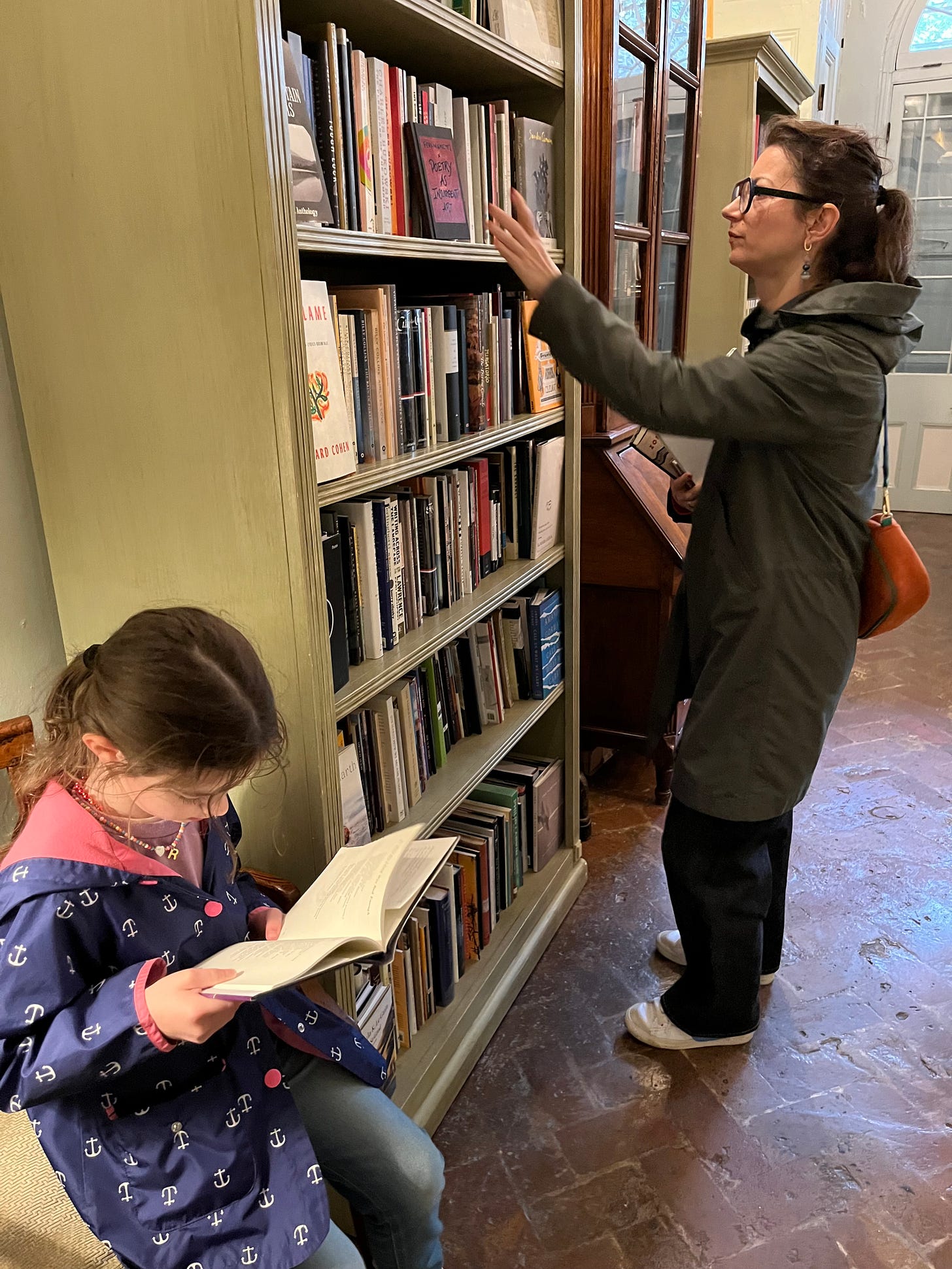

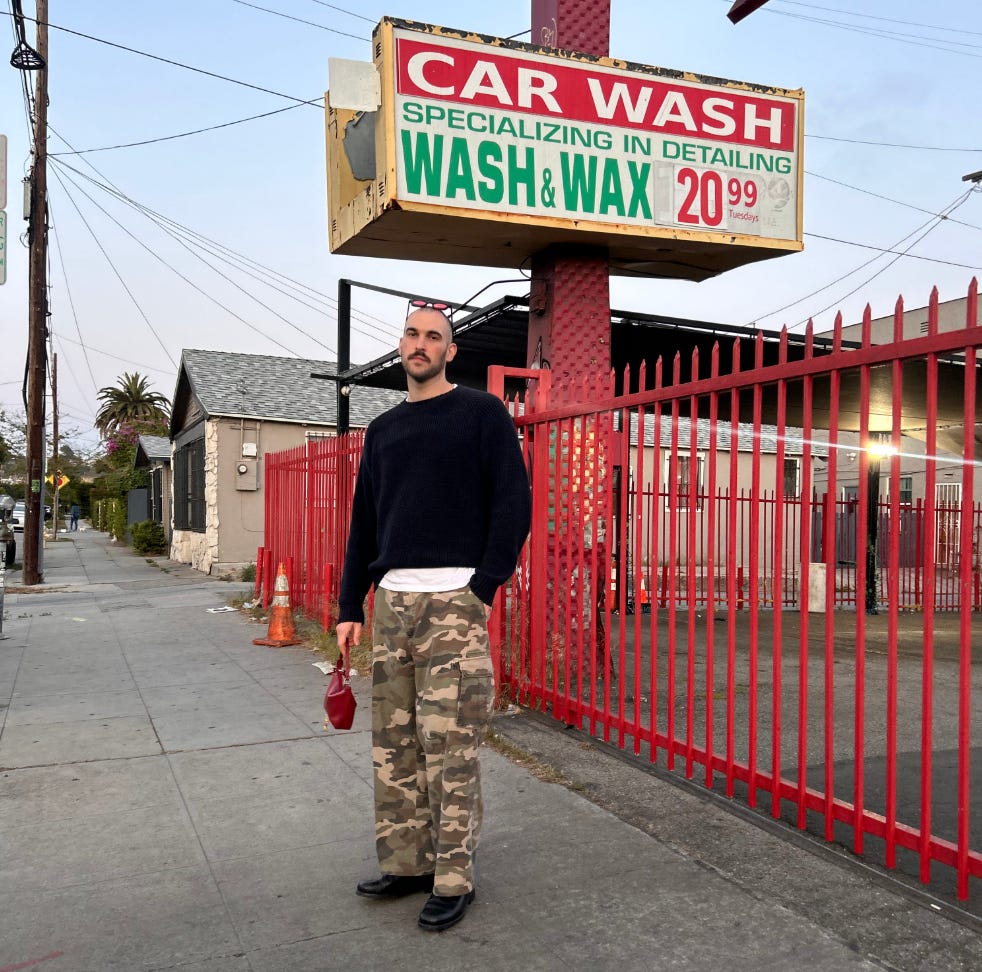
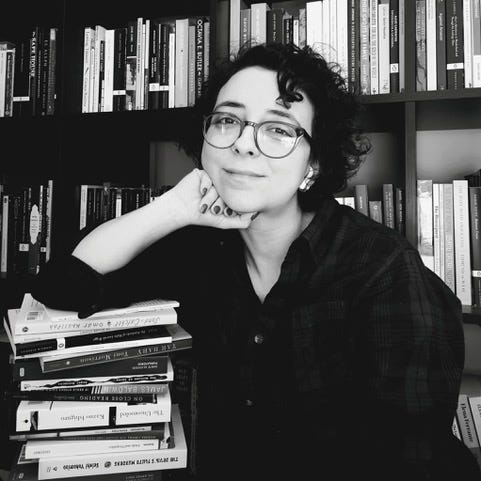
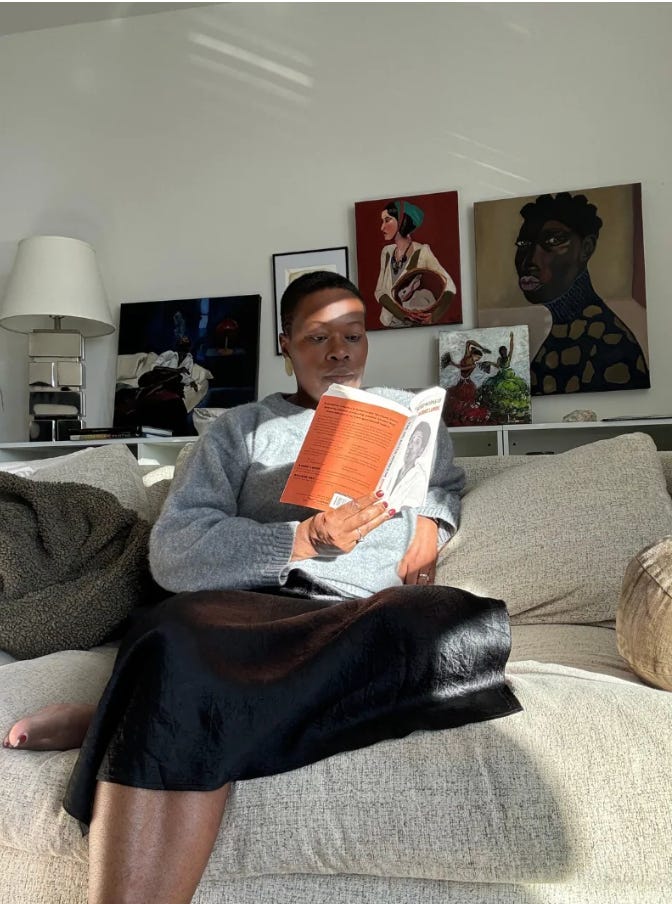

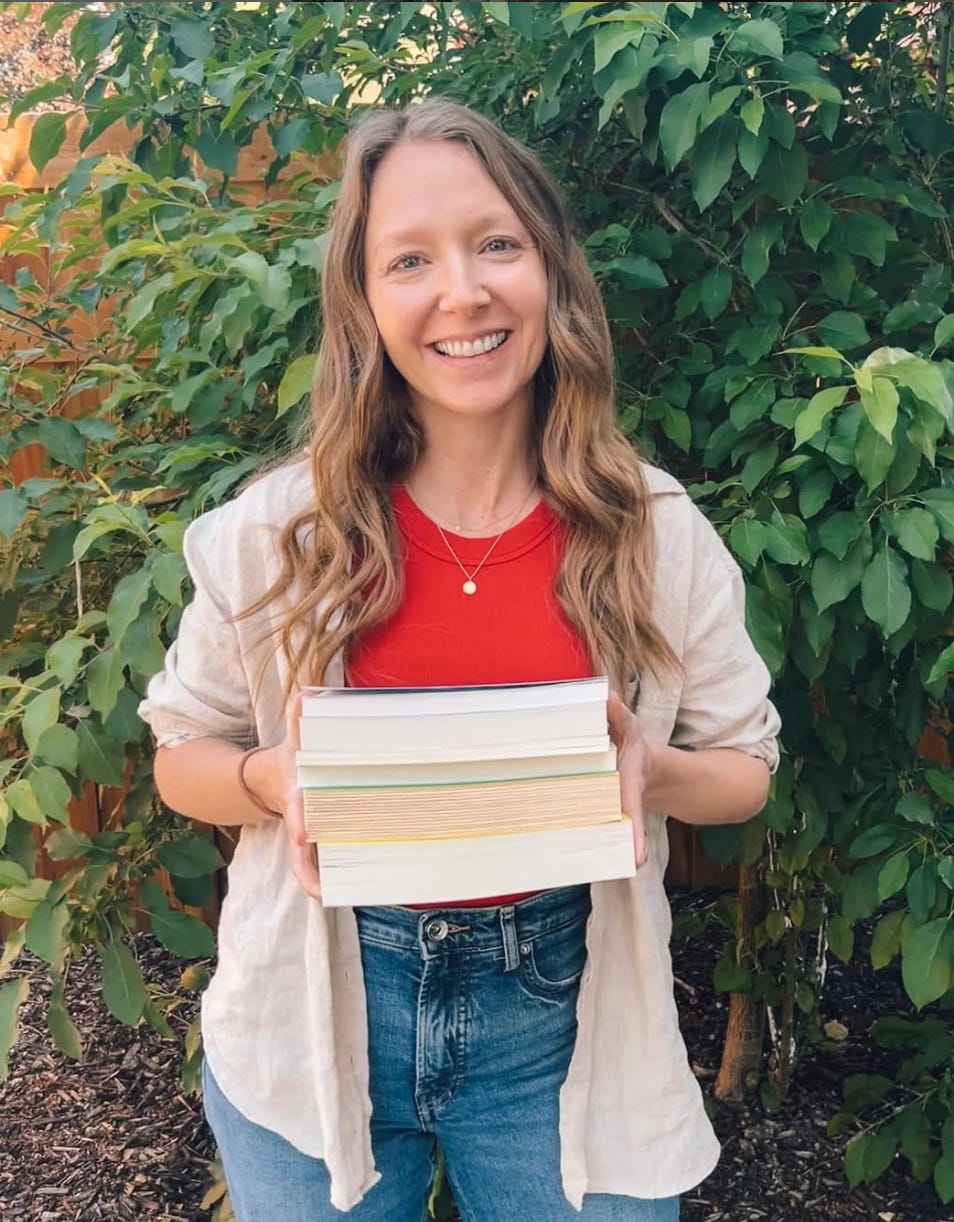

I love Mike’s food analogy so much! As always, Petya you bring to the front ideas readers noodle on in fragments and you carve out a small corner for us to think out loud with each other. I don’t know how you do it, but this space feels like a pondering, reflective corner.
Wonderful essay my friend. I think about this idea of taste often, especially as someone who writes about books. There is a part of me that feels the need to read the "right" books to be taken seriously. At the same time, I want reading to be a pleasure. I try to read both wide and deep. I go wide to find new authors and styles that I enjoy. But once I find an author I love I tend to go deep and read everything they ever wrote. It is a method that works for me and I consider myself fortunate to have the time to devote to this passion.
p.s. We need to meet up for lunch again!